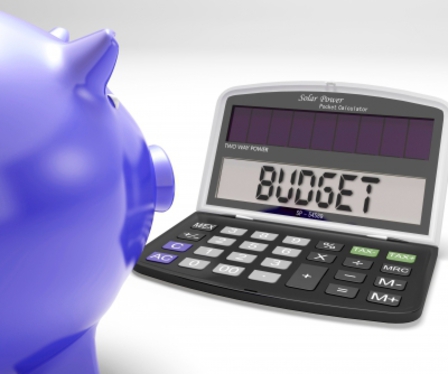How To Spend Your Training Budget
How To Spend Your Training Budget?
By Mark Wager
During poor economic times, there are two areas of the business that CEO's tend immediately to look at to save money. These areas are advertising and training. These two areas are always the first to have their budgets cut. Now more than ever companies have to be very prudent with their money and training is vital for every business but with limited money, how do you spend your money in order to get the best return?
How much should your training budget be?
In North America the average spend for all corporate training activities equates to around 1.1% of annual revenues. So if your company has an annual revenue of $1,000,000 then your training budget for the year should be a minimum of $11,000 if you go any lower then you run the risk of quickly falling behind your competitors.
How should you spend the money?
One of the biggest challenges in the training world is the lack of research of the return on investment when companies spend their training budget. Typically what happens in the majority of businesses is that people ask their Manager for a particular type of training and the request goes to the human resources department in order to find an applicable course. This is the equivalent of taking your money into a casino and betting it all on a turn of the roulette wheel. There's a high risk that you will never ever see a return on your money. Research has shown that 90% of everything a participant learns on a training course is forgotten within thirty days if they do not apply that learning on a daily basis and reflect on their outcomes with a subject matter expert. Why would you spend money when 90% will be wasted? Yet companies do this everyday.
It's time to stop wasting your money and start looking at sound investments. The best return on investment is training with an Executive Coach. This is when an experienced coach works with an executive to improve their performance within the role. Your senior managers make decisions where they have significant impact on the productivity of the business. Their relationships with employees is determined as the most significant on an employee's engagement with the business which in turn impacts their productivity. If you can improve the performance of the most important people within the organisation you will improve the performance overall of the business. A common misunderstanding is that Executive Coaching is only for executives. Quality coaching is for anyone who is serious about being the best they can be.
Do you want a 529% return on your money?
Now let's talk about numbers. A study published by the American Society for Training and Development cited a return on investment of 529% for executive coaching. The main reason for such a high return can be attributed to the fact that specific issues can be highlighted, addressed and followed up on during time including issues that the executive may be unaware of. International research that I've conducted myself indicated that around 10% (one in ten) Managers rate their leadership skills as poor yet employees responded that 25% (one in four) Managers in their opinion were poor leaders. There is a disconnect between how senior managers view themselves and how their employees view them. Executive coaching can help bridge this gap which improves relationships with employees and better quality decision making.
Link everything together
Every dollar you spend needs to be working for you. To do this with your training budget is to make sure all expenditure is linked to your overall strategy. In this way your company objectives drives your training/coaching needs. As an example I'm coaching an Executive who is overseeing a significant change in the culture of their organisation, a change that will involve decisions that will not only impact people's jobs but also the future of the organisation itself. Every two weeks we spend an hour together on videoconference to discuss the immediate challenges facing the executive and how to overcome them. The investment in training this executive is making targeted changes to be directly linked to the overall strategy which means the impact of the training is highly significant.
Your training budget should no longer be a low priority, your training budget is an opportunity to make investments that will drive your business forward and make you even more profitable. This can be done by being clear about your strategy and bringing on board a quality Executive Coach who can help the management team achieve and even exceed their objectives.
Mark Wager is a Leadership Coach who specialises in designing and facilitating leadership development programmes for individuals and teams across the Asia Pacific region. You can contact Mark via the enquiry form below.
Posted: Wednesday 13 April 2016

